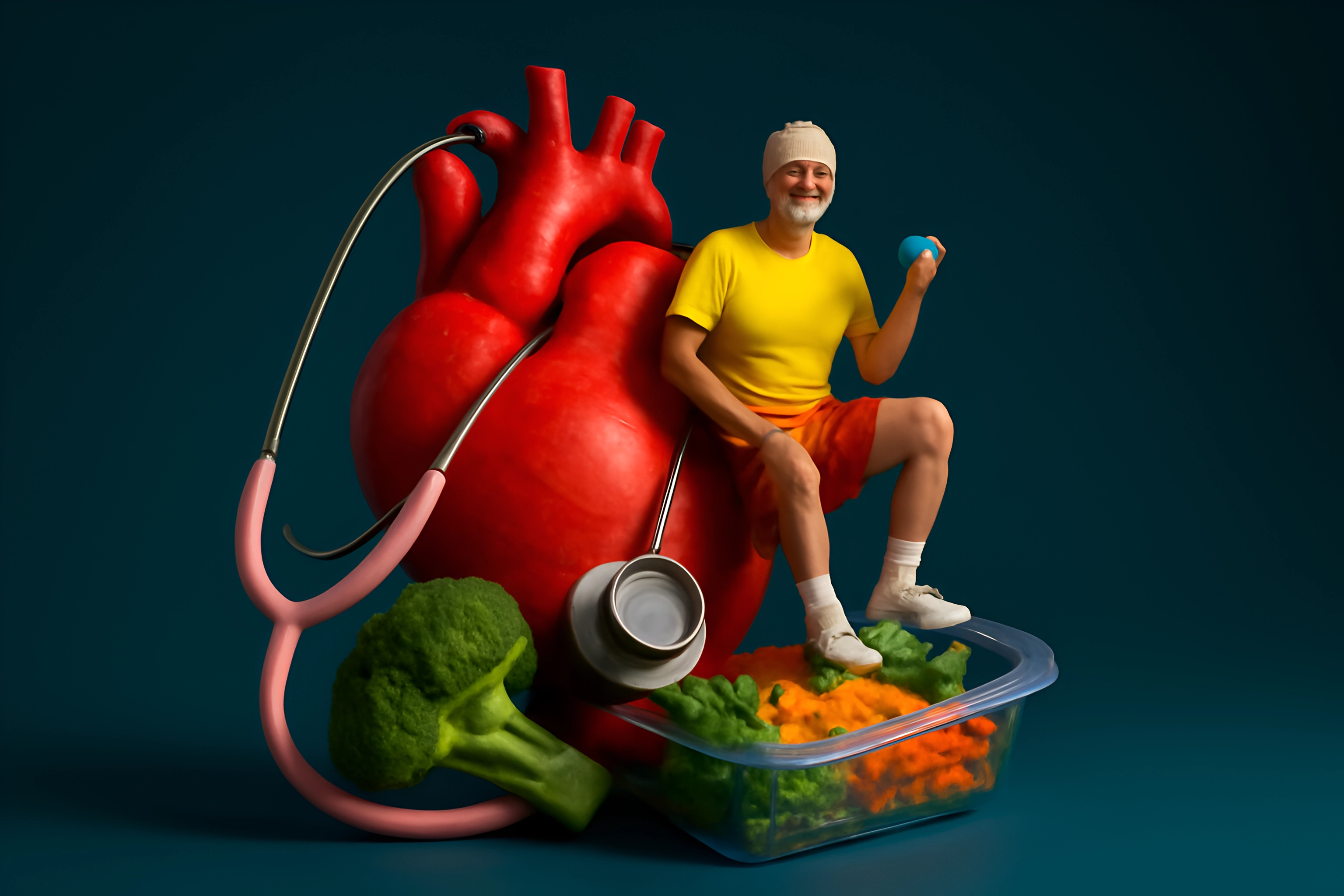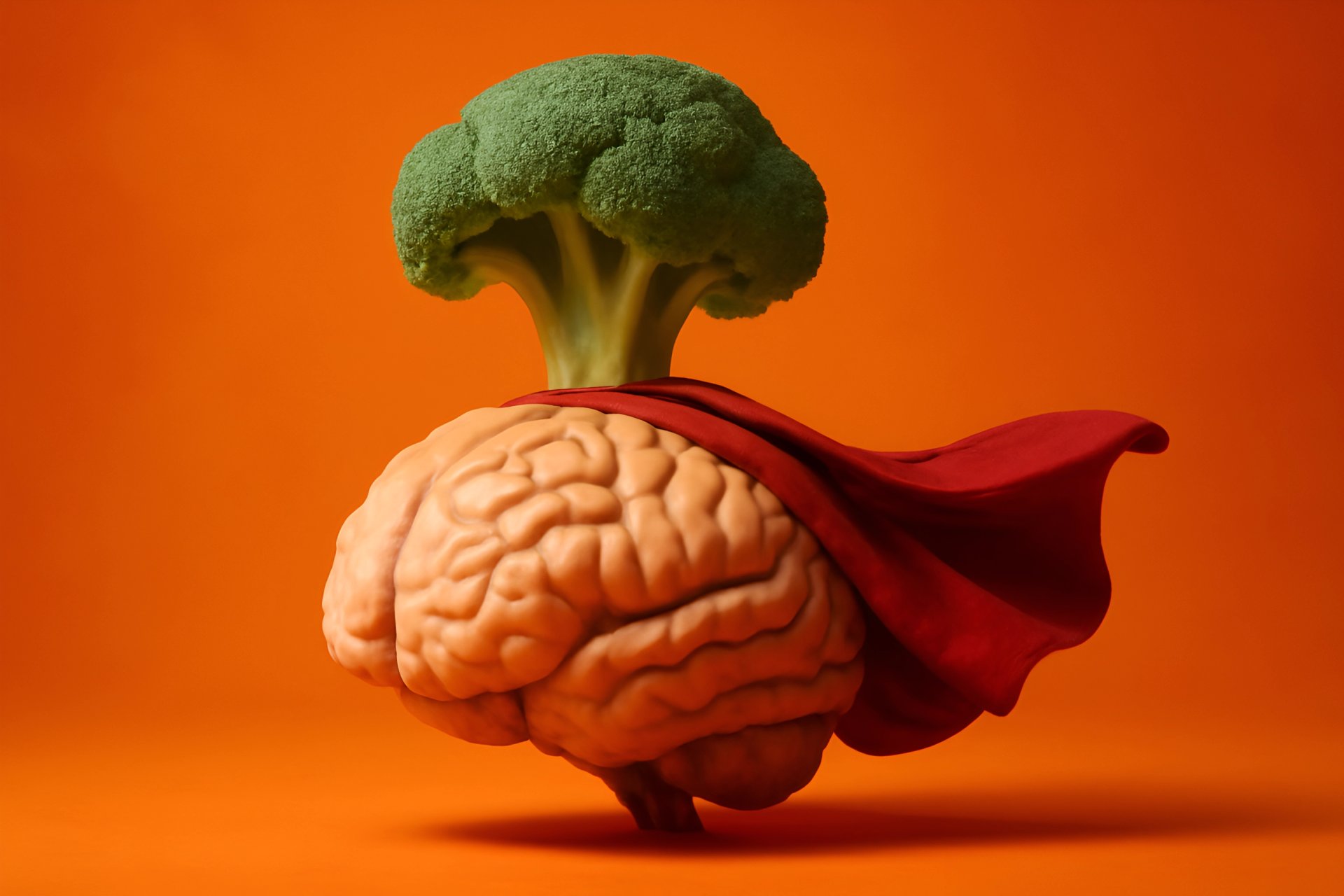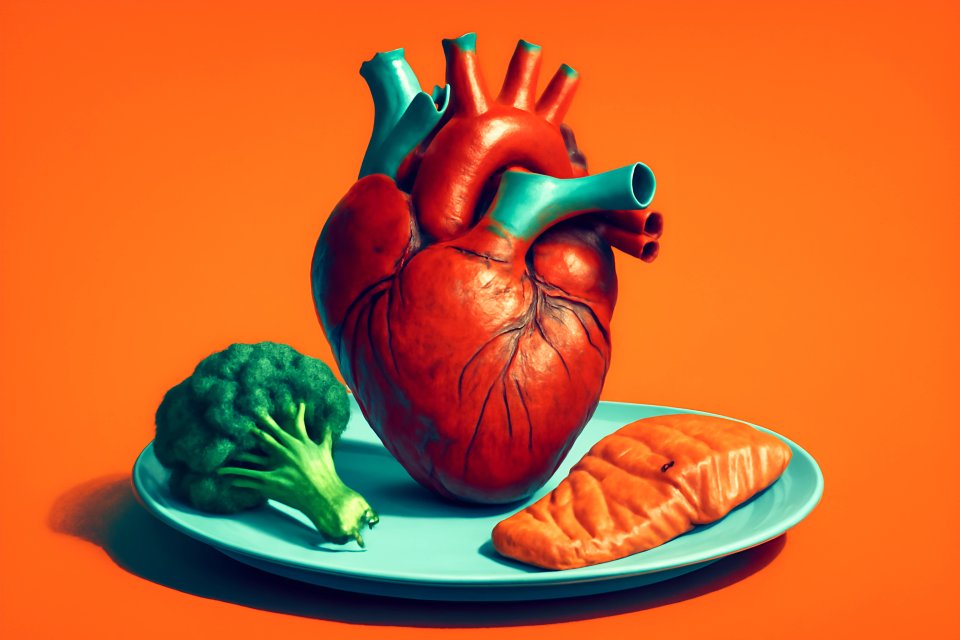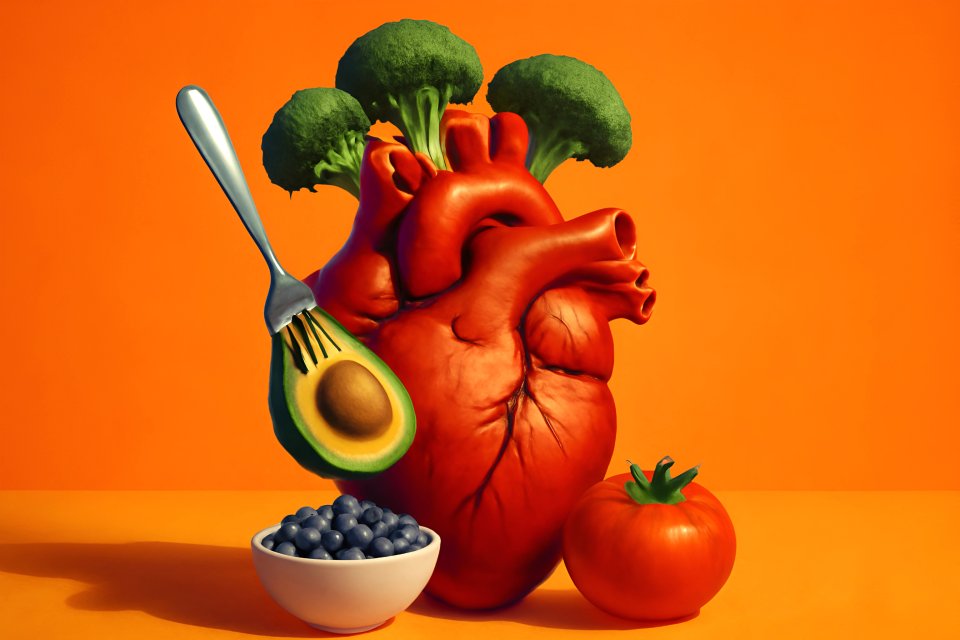
You’ve just come back from a brisk walk, a yoga class, or a round of golf, and you're feeling energized. The last thing you want is to derail that great feeling by worrying about what to cook for a healthy dinner. That dreaded 5 PM scramble—staring into the fridge, wondering what you can throw together that’s both quick and good for you—can drain the very vitality you just worked so hard to build.
This is your time. A time for enjoying your passions, not for stressing over mealtime logistics. Staying active requires the right fuel, and for those of us over 50, that means paying special attention to our heart health. The truth is, the food you eat is the foundation of your energy, your strength, and your long-term well-being.
Imagine opening your refrigerator to find delicious, ready-to-eat meals that are specifically designed to power your active life and protect your heart. This isn't about complicated diets or spending your entire Sunday in the kitchen. This is about reclaiming your time and taking decisive control of your health. This article will provide a step-by-step guide to heart-smart meal prep for seniors, complete with delicious, easy-to-follow recipes that will keep you feeling your best all week long.
Why Heart-Healthy Meal Prep is a Game-Changer After 50
Let's be direct: what you eat has a profound impact on how you feel, especially when it comes to your cardiovascular system. After 50, our bodies have different needs, and being proactive with nutrition is one of the most powerful moves you can make for your health. According to the American Heart Association, a heart-healthy diet is a cornerstone of preventing cardiovascular disease, which remains a leading health concern for adults.
Meal prep is your secret weapon for consistency. It transforms your good intentions into automatic habits by eliminating the daily guesswork. When a nutritious meal is the most convenient option available, you’re far more likely to stick to your goals, ensuring your body gets a steady supply of the nutrients it needs for sustained energy. This means no more mid-afternoon slumps that cut your favorite activities short; just clean, reliable fuel to power you through your day.
Furthermore, a strategic approach to meal prep for heart health directly helps manage key health markers like blood pressure and cholesterol. By focusing on whole foods rich in fiber, healthy fats, and antioxidants—and consciously reducing sodium—you are actively supporting your cardiovascular system. It’s a simple equation: consistent, smart food choices lead to better health outcomes, giving you the peace of mind and physical freedom to live the vibrant life you deserve.
The FitOverFifty Blueprint: Your 3-Step Meal Prep Kickstart
Feeling overwhelmed? Don't be. We're going to break this down into a simple, non-intimidating plan that works for real life. This isn't about perfection; it's about progress.
Step 1: Plan with Purpose
Your journey begins not in the kitchen, but with a simple piece of paper or a note on your phone. The goal here is to keep it incredibly simple. Choose just one or two recipes for breakfast, lunch, and dinner that you'll eat for the next few days. You don't need a seven-day, three-meals-a-day spreadsheet to succeed.
Before you even think about a grocery list, do a quick scan of your pantry, fridge, and freezer. What do you already have? Maybe you have a bag of quinoa, some frozen berries, or a can of chickpeas. Planning around these items saves you money and reduces food waste.
This initial planning phase is the most critical step. By deciding what you'll eat ahead of time, you eliminate decision fatigue during a busy week. For a deeper dive into building a sustainable plan, explore our guide to Age-Defying Nutrition: Meal Planning Tips for Heart Health After 50.
Step 2: Shop Smart
Now that you have a plan, it's time to gather your supplies. The secret to a successful grocery run is to shop the perimeter of the store first. This is where you'll find the freshest, most nutrient-dense foods: vibrant produce, lean proteins, and low-fat dairy.
Create your shopping list based on your chosen recipes. To make it even easier, focus on grabbing a few heart-healthy staples that can be used in a variety of dishes. Think of these as your nutritional building blocks.
Here is a mini-checklist of powerhouse ingredients to always have on hand:
- Whole Grains: Rolled oats, quinoa, brown rice
- Lean Proteins: Salmon, chicken breast, beans, lentils
- Healthy Fats: Avocados, nuts (walnuts, almonds), seeds (chia, flax), olive oil
- Produce: Leafy greens (spinach, kale), berries, broccoli, sweet potatoes
By focusing on these core components, you'll always be prepared to whip up something delicious and nourishing. To learn more about which ingredients pack the biggest nutritional punch, check out our list of Heart-Healthy Superfoods: Nutrient-Rich Recipes and Tips for Seniors.
Step 3: Prep with Ease
This is where your plan comes to life. Set aside just one to two hours on a day that works for you—Sunday afternoon is a popular choice. Put on some music, pour a cup of tea, and think of this as an investment in your future self.
The most effective strategy is component prepping. Instead of making five complete, separate meals, you prepare the individual ingredients. This gives you the flexibility to mix and match throughout the week, preventing flavor fatigue.
For example, in one session you can:
- Cook a large batch of quinoa or brown rice.
- Roast a big sheet pan of vegetables like broccoli, bell peppers, and sweet potatoes.
- Grill or bake a few chicken breasts or salmon fillets.
- Wash and chop fresh greens for salads.
- Mix a simple vinaigrette dressing.
With these components ready in your fridge, assembling a healthy meal takes minutes, not an hour. This approach, inspired by practical meal ideas from health experts, is the key to making meal prep a sustainable, long-term habit.
Your Weekly Menu: 4 Nutritious Recipes for Active Seniors Over 50
Here are four simple, delicious, and heart-healthy recipes to get you started. Each one is packed with flavor and designed for easy preparation and storage, making them perfect examples of senior nutrition recipes.
Energizing Breakfast: Berry & Walnut Overnight Oats
Why It's Heart-Smart: The soluble fiber from oats is a champion at helping to lower "bad" LDL cholesterol. Walnuts deliver a powerful dose of plant-based omega-3 fatty acids, while berries provide antioxidants that fight inflammation. This breakfast is the perfect way to start your day with stable, long-lasting energy.
Ingredients & Simple Instructions: In a jar or container, combine 1/2 cup rolled oats, 1/2 cup unsweetened almond milk (or milk of choice), 1 tablespoon chia seeds, 1/4 cup mixed berries (fresh or frozen), and 1 tablespoon chopped walnuts. Stir well, cover, and refrigerate overnight. In the morning, give it another stir and enjoy.
Meal Prep Tip: Make 3-4 jars at once on Sunday night. They’ll keep perfectly in the fridge for up to 4 days. Just grab and go in the morning! For more ideas, explore our guide to Balanced Breakfasts for Seniors: Nutritious Recipes to Start Your Day Right Over 50.
Power-Packed Lunch: Mediterranean Quinoa Salad Jars
Why It's Heart-Smart: This vibrant salad is a nutritional powerhouse. It's loaded with fiber from the chickpeas and fresh vegetables, healthy monounsaturated fats from the olive oil, and complete protein from the quinoa. This combination is designed to keep you feeling full, satisfied, and energized all afternoon.
Ingredients & Simple Instructions: For the dressing, whisk together 2 tbsp olive oil, 1 tbsp lemon juice, and a pinch of dried oregano. To assemble the jar, pour the dressing in the bottom. Then, layer the ingredients in this order: 1/4 cup chopped cucumber, 1/4 cup cherry tomatoes, 1/4 cup canned chickpeas (rinsed), 1/2 cup cooked quinoa, and a big handful of spinach on top.
Meal Prep Tip: Layering is key to preventing a soggy salad! The dressing stays on the bottom, separated from the greens by the heartier ingredients. When you're ready to eat, just shake the jar vigorously and pour it into a bowl.
Satisfying Dinner: Sheet Pan Lemon-Herb Salmon with Roasted Broccoli & Sweet Potatoes
Why It's Heart-Smart: Salmon is one of the best sources of heart-protective omega-3 fatty acids, which are known to reduce inflammation and support cardiovascular health. The Mayo Clinic consistently recommends fatty fish as part of a heart-healthy diet. Broccoli and sweet potatoes are packed with fiber, vitamins, and minerals, making this a perfectly balanced meal.
Ingredients & Simple Instructions: Preheat your oven to 400°F (200°C). On a large baking sheet, toss 1 cup of broccoli florets and 1 cup of cubed sweet potato with 1 tbsp of olive oil, salt, and pepper. Roast for 15 minutes. Push the vegetables to the side, add a 4-oz salmon fillet to the pan, and season it with lemon juice, fresh dill, and garlic powder. Roast for another 10-12 minutes, or until the salmon is cooked through.
Meal Prep Tip: Portion the cooked salmon, broccoli, and sweet potatoes into individual containers for easy, reheatable dinners for the next 2-3 nights. For more dinner inspiration, check out these Nutrient Dense Dinner Ideas for Heart Health After 50.
Smart Snack: No-Bake Almond Butter Energy Bites
Why It's Heart-Smart: This is the perfect portion-controlled snack to crush cravings and provide a steady stream of energy. It features healthy fats from almond butter and fiber from oats and chia seeds. Unlike sugary store-bought snacks, these bites won't lead to an energy crash.
Ingredients & Simple Instructions: In a bowl, mix 1 cup rolled oats, 1/2 cup almond butter, 1/3 cup honey or maple syrup, 1 tbsp chia seeds, and 1/4 cup dark chocolate chips (optional). Mix until well combined. Roll the mixture into 1-inch balls.
Meal Prep Tip: This recipe requires no baking at all. Simply roll a dozen bites and store them in an airtight container in the fridge for up to a week for a quick, healthy snack anytime you need a boost.
Tips for Long-Term Success
Creating a new habit is a marathon, not a sprint. Use these tips from various heart-healthy dinner plans to ensure your meal prep routine sticks for the long haul.
- Invest in Quality Containers: Good containers make all the difference. Glass containers are fantastic because they don't stain, are easy to clean, and can go from the fridge to the microwave safely.
- Don't Overcomplicate: You don't have to prep every single meal for the entire week. Start by prepping just your lunches or a few dinners. Success builds momentum.
- Flavor with Herbs, Not Salt: Boost flavor without raising your sodium intake. Use fresh or dried herbs like basil, oregano, and rosemary, as well as spices, fresh lemon juice, and different kinds of vinegar.
- Listen to Your Body: Your nutritional needs can change daily. On a day you go for a long hike, you might need a larger portion than on a more restful day. Adjust your meals based on your activity level.
Conclusion: Take Charge of Your Health, One Delicious Meal at a Time
You now have the blueprint. You see that heart healthy meal prep is not about restriction or complexity; it's about empowerment. It's a simple, achievable habit that puts you firmly in the driver's seat of your health, giving you the energy and vitality to live your life to the fullest.
This is the core of the FitOverFifty philosophy. It’s about creating smart, sustainable systems that support your well-being so you can focus on what truly matters. By investing a little time upfront, you are gifting your future self with more time, more energy, and the profound peace of mind that comes from nourishing your body well. Combine this powerful nutritional strategy with our practical tips for boosting metabolism with daily activities to create a truly holistic approach to your health.
What is your go-to heart-healthy recipe? Do you have a meal prep tip that works for you? Share your wisdom with the FitOverFifty community in the comments below.












